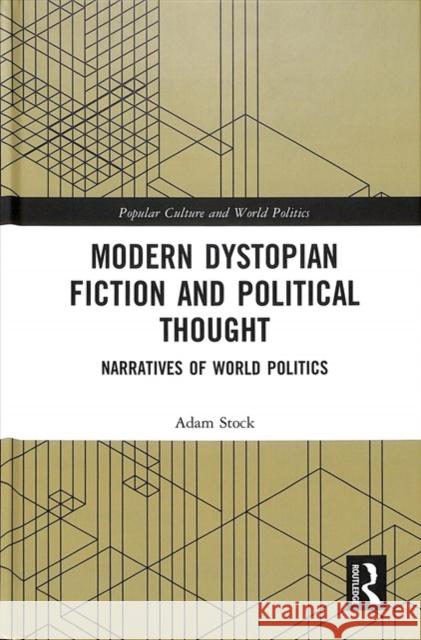Modern Dystopian Fiction and Political Thought: Narratives of World Politics » książka
Modern Dystopian Fiction and Political Thought: Narratives of World Politics
ISBN-13: 9781138101272 / Angielski / Twarda / 2018 / 230 str.
Modern Dystopian Fiction and Political Thought: Narratives of World Politics
ISBN-13: 9781138101272 / Angielski / Twarda / 2018 / 230 str.
(netto: 737,20 VAT: 5%)
Najniższa cena z 30 dni: 730,42
ok. 22 dni roboczych
Dostawa w 2026 r.
Darmowa dostawa!
Over the past few years, 'dystopia' has become a word with increasing cultural currency, this book examines the development of the dystopian genre and argues that dystopian fictions do not merely mirror what is happening in the world: their narrative conventions actually affect the ways in which we understand the international. Whether we are discussing NSA surveillance, genetic modification and food distribution or authoritarian government, the narrative conventions and generic tropes of dystopian fiction have become an important cultural means and referent by which we grapple with contemporary political problems, economic anxieties and social fears. The volume will address the development of the narrative methods and generic conventions of dystopian fiction as a mode of socio-political critique across the first half of the twentieth century, examining how a series of texts that emerged from an age of political extremes contributed to political discourse and rhetoric both in its contemporary setting and in the terms in which we now increasingly cast our cultural anxieties. By analysing how the dystopian interacts with social and political events, debates and ideas, Stock evaluates modern dystopian fiction as a historically responsive mode of political literature, arguing that amid the terrors and upheavals of the first half of the twentieth century, dystopian fiction provided a unique space for writers to engage with historical and contemporary political thought in a mode that had popular cultural appeal. Combining literary analysis informed by critical theory and the history of political thought with archival-based historical research to shed new light on the intersection of popular culture and world politics, this work will be of interest to students and scholars in a broad range of areas.











